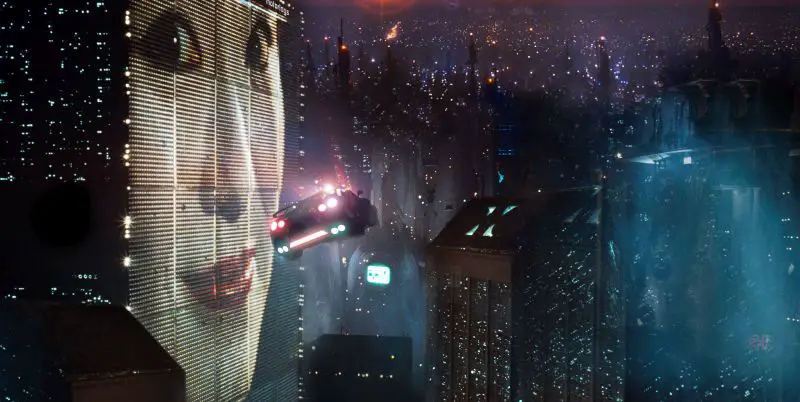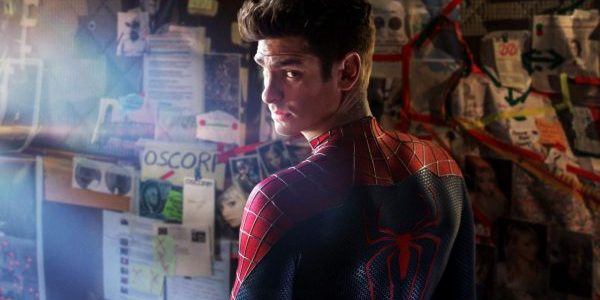Originality: Reboots, Sequels & How They Affect Modern Film

The ideology of originality in modern day cinema is a debate that is frequently discussed and examined, comparing it to what was considered the ‘Golden Age of Cinema’ in the 1900’s. Particularly regarded are the similar story lines and plots that are overused and are becoming somewhat identical, which can comprise of reboots of existing features, superheroes, etc. Along with the sheer amount of sequels that reoccur frequently even when audiences may not particularly want them, leading to them being ignored or neglected.
Both critics and the public alike weigh up validations to whether what is produced and shown on our screens is in fact unique content, or whether cinema is becoming more washed out and predictable. Examples for both of these theories are evident continually, especially in present film, therefore making this subject so relevant and important to contemporary media. Nowadays, with the amount of competition around, more and more people want to make film, but it is due to this reality that people do indeed doubt Hollywood and the value of its content.
The Classic Sequel
Firstly, the predominant understanding when discussing this particular debate is that the cinema is indeed lacking originality in modern times. Frequently, the concept of an ‘original’ and unique film is something producers and writers would strive for when creating their own content, yet it’s not always easily achievable. Because of the amount of media and materials that are already out in the public eye, it can prove difficult to stray away from these familiar themes and ideas behind them and create something completely different. Yet, this is still the content that sells and appeals to audiences, hence still perceived as beneficial to manufacture.

Sequels are a primary instance when thinking about what the audience wants and what indeed worked well for studios previously. Deciding to produce a sequel to a much loved and well accepted piece can either be beneficial or a complete blunder in the eyes of some audience individuals. For instance, Ice Age has become a larger serial for cinema that may now be overlooked by most.
Starting out in 2002, the feature was well received and later resulted in a sequel that may not have been particularly sought out, but the public still could come to accept. Now in 2016, there are presently four instalments (along with some unimportant short films, apps and other serial merchandising) and a fifth one due July of this year, which only just recently came to my attention. Somewhat of a surprise that the series was still ongoing, it brings to question if these bunch of characters have outstayed their welcome.
Existence of the Unchanging Hero
This year is a prime example when the thread of superhero films is considered. 2016 brought to attention a higher emergence of multiple features depicting favourable DC and Marvel heroes. This consequently aroused discussion into whether or not this was considered to be too much, leading to a lack of interest for some prospective audiences. But, due to the popularity of initial releases, coupled with new technologies to produce higher quality effects and CGI, studios even want to reinvigorate franchises that had seemingly come to a halt.

Spiderman was rebooted five years after the original three movies were issued, and now due to be done a third time in 2017. Now owned by the Marvel Cinematic Universe, Spiderman can be considered a prime example of how studios can’t seem to let go of beloved superhero characters, constantly taking this perhaps overused protagonist and reestablishing him in different ways. Attempting to differentiate between the original Spiderman series and The Amazing Spiderman duology can prove to be enigmatic, particularly in terms of costume appearance and origin storyline. Frequently it is left distinguished mainly by the cast and actors taking on the role of the heroic Peter Parker.
That said, because these franchises, reboots and sequels gain enough acknowledgement from the public and critics, this then results in smaller and more ‘original’ content gets overlooked and doesn’t get the recognition it perhaps would deserve. Whether that is influenced by lack of funding or the domination of existing recognisable successions, there will always be some actuality of features and mediums that do in fact provide new, fresh plots and personas. It may just come down to the reasoning that viewers don’t properly seek out these and instead make do with what may become mainstream and highly recognised.
A New Way of Making Film
Aside from the franchises of cinema, there are still standalone pictures that emerge frequently. A recent example can be apparent in first-person POV action thriller, our review). Perhaps in terms of plot, it may not be the most original to much extent, as the similarities to first person shooter games such as “Call of Duty” are uncanny, but this doesn’t disregard the place it holds in terms of new cinematic approaches. Despite the obvious correlation with action sequences, the true originality of the piece is within the way it has been portrayed and promoted.

The first person point of view that is used is something never explored properly when it comes down to feature films. This therefore makes it an intriguing and thought-provoking medium that critics may disregard or disfavour, yet it is undeniably a revolutionary concept that should be explored and further in the world of film and story telling. Critics and viewers may be quick to judge when it comes to proving the lack of originality in films such as this example, yet sometimes deeper considerations require to be thought upon, before jumping to any conclusion of disregard.
There Must Be Still Some Hope For Cinema
Overall, it’s certain that individual genres do portray similar and sometimes identical themes and content, but that is expected from these classifications. Realistically, this does not mean to say that cinema is completely unoriginal. Each new concept and idea is formulated in contrasting ways, with different intentions and intents for what the producer or writer wants to portray to audiences and viewers.
It’s unlikely that studios will ever stop producing more and more sequels and adaptations due to how they still manage to gain large amounts of publicity and attention from viewers. This may just be due to how these individuals will proceed to remain attentive towards visuals they are familiar with, and have previously come to enjoy.
When the discussion of superheroes surfaces, we can argue that the existence of original material (in this case, the comic books) can somewhat limit the expansion of characters and scenarios. The eagerness to try and appeal to existing fans of the comic characters does restrict producers from stepping away from that original source that is already so well loved. Because of this we can come to understand, if there is a lack of originality, there may be a reason behind this perception.
The notions surrounding originality are very diverse, with many examples that could be called upon in order to support either side of the argument, obviously making it difficult to fully come to a conclusion. Some individuals may recognise the concept of originality in varied ways to others.
Do you believe cinema is lacking in originality and creativity? What’s your opinion on the high appearances of sequels and remakes such as the Superhero movies?
Does content like this matter to you?
Become a Member and support film journalism. Unlock access to all of Film Inquiry`s great articles. Join a community of like-minded readers who are passionate about cinema - get access to our private members Network, give back to independent filmmakers, and more.













